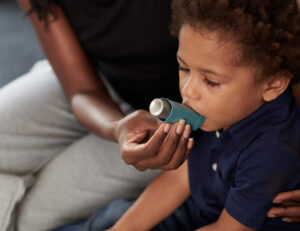“I’ll Be Joining an Environmentally Friendly Practice”
Archeta Rajagopalan, BS
As a medical student, I see the profound environmental wastefulness in the clinics where I’ve trained. I also see see the impacts of climate change. The seasons were distinct when I grew up; now we have deadly summer hot spells, delayed autumns, and warmer winters. It distresses me to see such drastic change in my own short lifetime. How much more will threaten the health of my patients and me during my decades ahead as a doctor?

The industry that will employ me in a few years is adding to these problems. Fossil fuels burned to create the energy needed for healthcare creates 8.4% of America’s toxic air pollution and greenhouse gases [1]. The air toxics are blamed for 405,000 years of life lost annually from asthma attacks, chronic lung disease, heart attacks, and cancer [1]. The climate change caused by the greenhouse gases will mean that thousands more will suffer each year from heat-related illness or death, mental illnesses, and other injuries brought by extreme weather and wildfires [2].
Environmental sustainability in the workplace is a priority for people globally. IBM reported in 2021 that two in every three survey respondents declared that environmental issues are “very or extremely important to them personally” and “69% of the full potential workforce say they’re more likely to accept a job with an organization they consider to be environmentally sustainable [3].” Deloitte reports that 97% of upper level managers say that they feel the impacts of climate change on their companies [4]. Further, 88% believe that climate change should be addressed by their companies [4].
The use of energy, chemicals, and supplies by outpatient public health clinics, medical practices, and dental offices is responsible for about a quarter of healthcare’s greenhouse gases [1]. For these reasons, I will do my part by choosing an environmentally friendly practice for my career. I will be looking for a practice committed to sustainability and with an ongoing sustainability practice management program. I hope to work with physicians, nurses, office staff, and managers who understand that this is the responsible way to work.
My informal survey of my medical school classmates revealed that many share my sentiments. One student wrote: “Being in hospitals, you are reminded every day of how harmful the practice of medicine can be to the environment. We’ve implemented so many protocols that produce excess waste that ends up being pollutants. I think the idea of taking measures to make office spaces greener means doing our small part to counteract some of the harmful effects that are intrinsic to our daily work.”
“Environmental sustainability helps attract the best young talent to your practice.”
There are direct benefits to clinical medical practices that “go green.” Most will save money as they learn to be less wasteful. One multispecialty group has been saving $1400 per doctor per year [5]. Practices benefit from enhanced staff job satisfaction, employee retention, patient approval, and community health outcomes. A part of being a “green” practice is to use brochures, posters, and other teaching tools to share wise choices with colleagues, patients, and families. Lastly, environmental sustainability will give you the competitive advantage to attract the best young talent to your practice: smart, compassionate, community-minded doctors!
Several free, money-saving resources are available to practice managers and health professional leaders  to make their practices more sustainable. EyeSustain (www.EyeSustain.org) offers resources for the needs of ophthalmologists, but all surgeons and proceduralists can benefit from its advice. EyeSustain is supported by a coalition of more than forty ophthalmology societies worldwide. The EyeSustain initiative offers a model that other specialties can replicate to reduce waste and create new, climate-minded standards of care. Most of the people involved in the EyeSustain are young academicians, practicing ophthalmologists, fellows, residents, or medical students. Our next generation of leaders already is mobilizing to change healthcare!
to make their practices more sustainable. EyeSustain (www.EyeSustain.org) offers resources for the needs of ophthalmologists, but all surgeons and proceduralists can benefit from its advice. EyeSustain is supported by a coalition of more than forty ophthalmology societies worldwide. The EyeSustain initiative offers a model that other specialties can replicate to reduce waste and create new, climate-minded standards of care. Most of the people involved in the EyeSustain are young academicians, practicing ophthalmologists, fellows, residents, or medical students. Our next generation of leaders already is mobilizing to change healthcare!
 Another easy-to-use and free resource is My Green Doctor, a medical clinic management program that can help any type of outpatient practice to qualify for the impressive Green Doctor Office Recognition Certificate. Register today at www.MyGreenDoctor.org or at www.MyGreenDoctor.es (si, en espanol). Their “Three Minute Video” will explain how to get started.
Another easy-to-use and free resource is My Green Doctor, a medical clinic management program that can help any type of outpatient practice to qualify for the impressive Green Doctor Office Recognition Certificate. Register today at www.MyGreenDoctor.org or at www.MyGreenDoctor.es (si, en espanol). Their “Three Minute Video” will explain how to get started.
In a few years, I will be seeking an environmentally friendly practice. This is one of many reasons for your practice to begin its environmental sustainability journey: to begin saving money, to create a healthier community, and to attract the finest young talent to your healthcare team.
References:
- Sack TL, “Green Offices Are Healthier: New Analysis”, 2020, https://mygreendoctor.org/green-offices-are-healthier-new-analysis/ Accessed 1.12.2024.
- Rocque RJ, Beaudoin C, Ndjaboue R, Cameron L, Poirier-Bergeron L, Poulin-Rheault R, Fallon C, Tricco AC, Witteman HO. “Health effects of climate change: an overview of systematic reviews.” BMJ Open 2021;11:e046333. doi:10.1136/bmjopen-2020-046333
- IBM Corporation. “Sustainability at a turning point.” May 2021. https://www.ibm.com/downloads/cas/WLJ7LVP4.
- Deloitte Global. “2022 Deloitte CxO Sustainability Report” 2022. https://www.deloitte.com/global/en/issues/climate/deloitte-cxo-sustainability-report.html. Accessed 1.12.2024
- “Success Stories: Escambia County Health Department,” https://mygreendoctor.org/profiles/ Accessed 1.12.2024
 About the Author: Archeta Rajagopalan, BS (she/hers) is a medical student at the Keck School of Medicine at the University of Southern California and a Contributing Editor for My Green Doctor. She hopes to have a career in ophthalmology. Her email is [email protected].
About the Author: Archeta Rajagopalan, BS (she/hers) is a medical student at the Keck School of Medicine at the University of Southern California and a Contributing Editor for My Green Doctor. She hopes to have a career in ophthalmology. Her email is [email protected].
#sustainability, #medicalpractice, #climatechange, #practicemanagement, @eyesustain, #medicalstudent, #healthcare, #mygreendoctor

